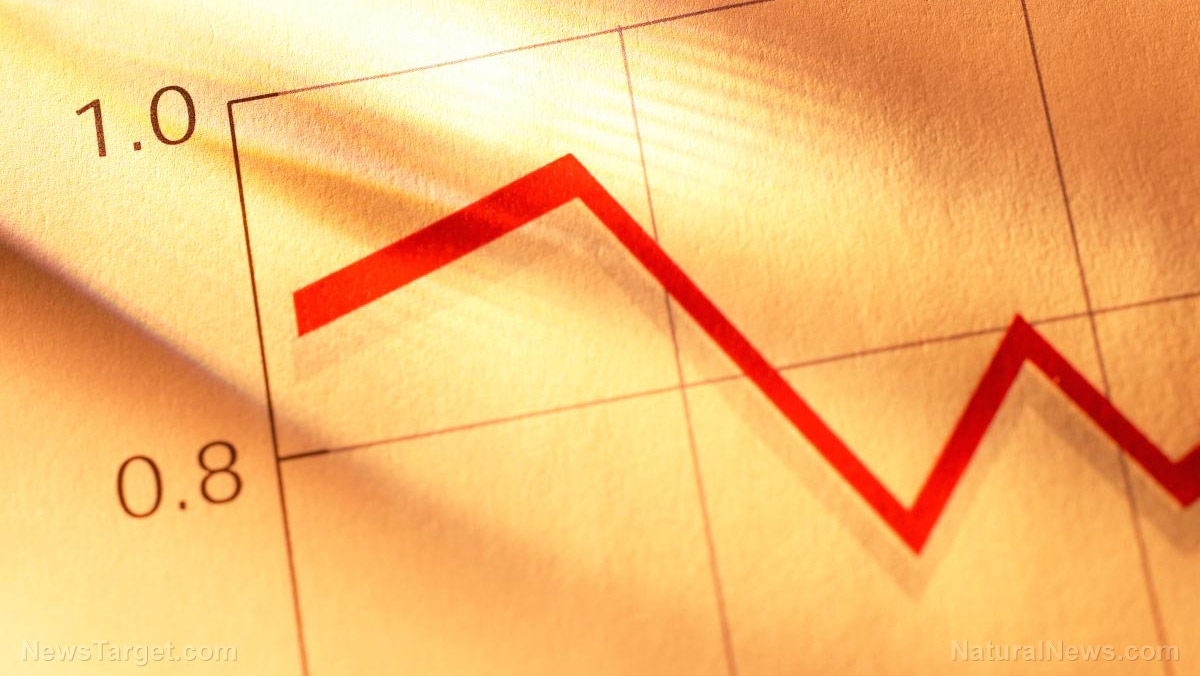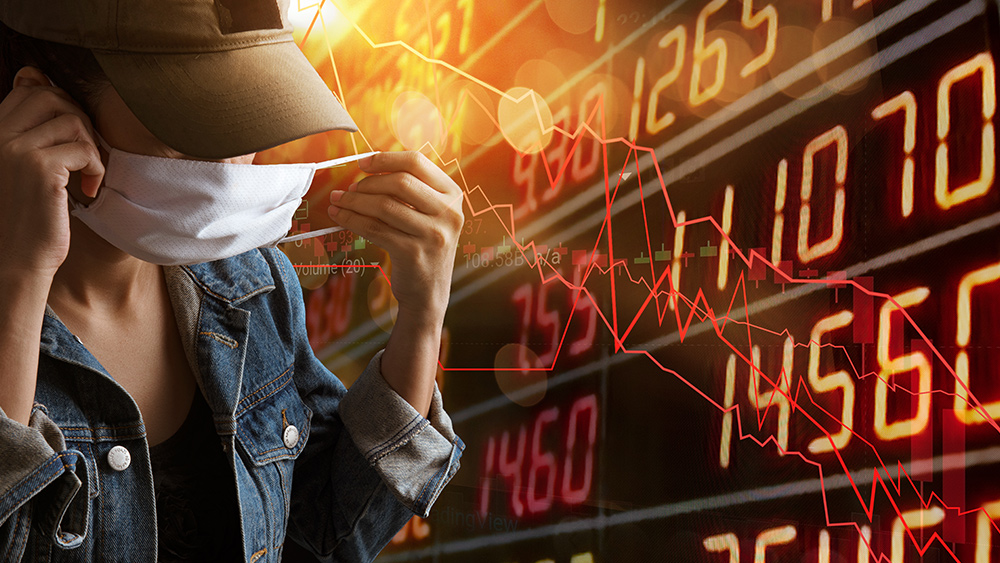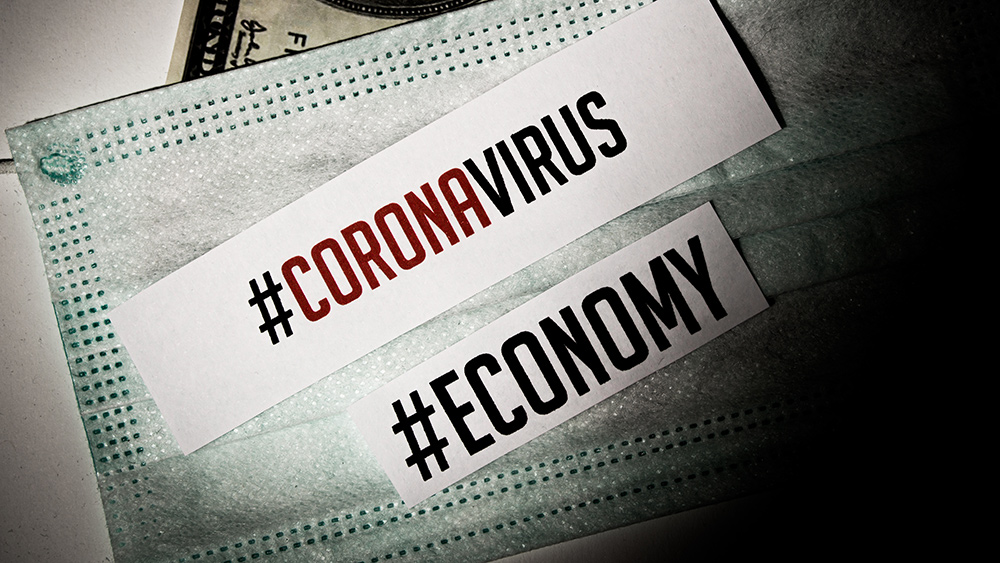Drop in cryptocurrency prices raises questions about their stability
05/26/2021 / By Franz Walker

Cryptocurrencies, such as bitcoin and dogecoin, went through a roller coaster the past few weeks, with prices falling from previous highs. While the values of cryptocurrencies remain high, it’s raised fears about their stability.
The values of various cryptocurrencies fell over the past few weeks after Tesla CEO Elon Musk pulled the automaker’s support for bitcoin on environmental grounds. Prices dipped further when Musk appeared to hint that Tesla has sold its large bitcoin holdings. While Musk later denied this, by then, the price of bitcoin had already dropped.
Cryptocurrency values did recover slightly by the morning of Tuesday, May 18. Bitcoin, for example, was up by one percent that day but still down by almost 20 percent compared to the previous week. Other cryptocurrencies also experienced similar gains, with the market up by around 1.92 percent.
SEC warns that bitcoin, other cryptos, are highly speculative
The wild fluctuations of the crypto market are coming as regulators have intensified concern about the risk taken on by ordinary investors and the potential for misconduct in these largely anonymous digital payment systems.
The Securities and Exchange Commission (SEC) warned investors last week that bitcoin was a “highly speculative investment.” In its warning, the SEC pointed to bitcoin’s “lack of regulation and potential for fraud and manipulation.”
Investment in cryptocurrencies, which now number nearly 10,000, has been fueled by websites and apps, such as Robinhood and Coinbase, which allow investors to easily trade in them. Meanwhile, the stimulus checks that have been given out to Americans stuck at home during the pandemic have also provided many erstwhile crypto investors with money to burn.
Cryptocurrencies are attractive to many due to their decentralized nature. In most cases, they’re run on a global network of computers that are not under the control of a central bank or company. Record keeping is instead done on the user level, with transactions recorded on a public ledger without a middleman brokering the transaction.
But this decentralization also makes it attractive to criminal elements. For example, the recent ransomware attack that brought down the Colonial Pipeline, sparking gas shortages around the country last week, was paid off using bitcoin.
“There is a tension of privacy versus a government’s right to know,” says Kenneth Rogoff, an economics professor at Harvard University. Rogoff noted that tax evasion and the financing of illicit activity are among the challenges that cryptocurrencies pose to governments.
“This has been going on with cash forever, but cash is nothing compared to the potential for crypto,” he adds.
Crypto values easily influenced by high profile investors, like Elon Musk
Part of what makes cryptocurrencies so volatile is how easy their values can swing based on the words and actions of a few large investors and personalities. The most notable of these is Tesla’s Musk.
During his “Saturday Night Live” appearance on May 8, the Tesla and SpaceX CEO called himself the “Dogefather,” appearing to disparage the cryptocurrency dogecoin. This caused the value of that crypto to tumble by more than 30 percent. (Related: Spike in value of meme crypto dogecoin raises bubble fears.)
That was followed up by another market-moving event from Musk. In a tweet, the Tesla CEO stated that the company would no longer accept bitcoin as payment, citing its high energy cost. This move caused bitcoin, currently the most valuable cryptocurrency, to plunge by around 10 percent, taking many others along with it. Prices fell further on Sunday, May 16 after Musk suggested on Twitter that Tesla was looking to sell or may have already sold its considerable bitcoin holdings.
“There really is something unprecedented and amazing and almost magical about Elon Musk’s continuing ability and inclination to move the prices of Bitcoin and Dogecoin with his slightest whim,” noted Bloomberg columnist Matt Levine.
In his column, Levine noted that Musk “definitely” had the power to move bitcoin and dogecoin prices “whenever he feels like it.”
He also points to cryptocurrencies’ lack of regulation, stating that Musk could simply buy large amounts of dogecoin and bitcoin before making their prices go up.
“If he did do that, he probably would not have much in the way of disclosure obligations, at least not real-time disclosure obligations.”
It’s in light of these that regulators, such as those in the SEC, have made their warnings about cryptocurrencies.
“Right now the exchanges trading in these crypto assets do not have a regulatory framework, either at the SEC or our sister agency, the Commodity Futures Trading Commission,” said SEC Chair Gary Gensler during a session of Congress where he made his first remarks on cryptocurrency regulation. “Right now there’s not a market regulator around these crypto exchanges. And thus there’s really not protection against fraud or manipulation.”
Other officials, including those abroad, have taken a less diplomatic approach.
“I’m going to say this very bluntly again,” said Andrew Bailey, governor of the Bank of England. “Buy them only if you’re prepared to lose all your money.”
Follow Risk.news for more stories about bitcoin, dogecoin and other cryptocurrencies.
Sources include:
Tagged Under: bitcoin, crypto, crypto cult, cryptocurrency, currency, dogecoin, economy, Elon Musk, ethereum, finance, risk, stock market
RECENT NEWS & ARTICLES
COPYRIGHT © 2017 BUBBLE NEWS


















